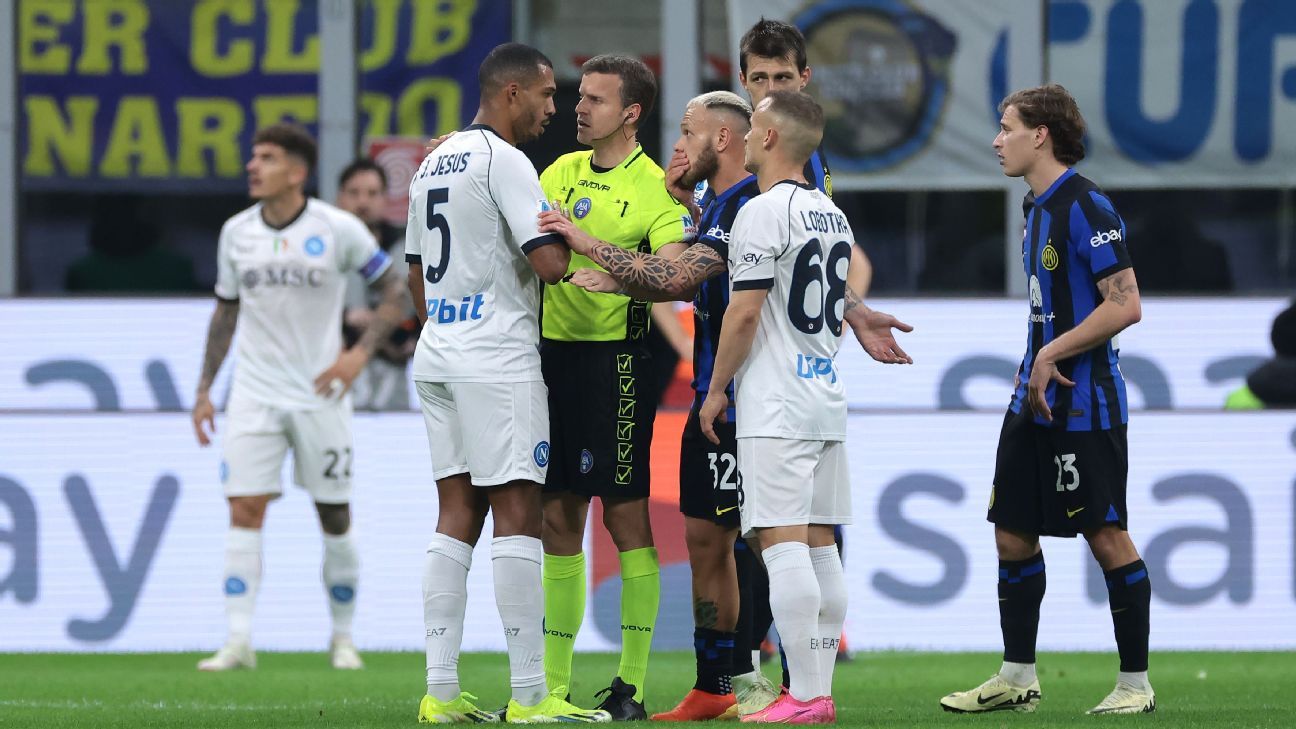Even the advantage of the budget was wasted. Boasting about projects means nothing if there aren’t even the basic foundations to build them on.
Words mean nothing. And that’s nothing new. Because you can talk all you want, paint a pretty picture, dress up projects with lofty principles, values, slogans, and ideas—but in the end, what truly counts, what delivers the final and indisputable verdict, is the pitch. And the pitch says that between Milan and Inter—without even bringing up the minor Italian Super Cup or the secondary Coppa Italia—there’s a chasm on every level: technical, tactical, managerial, in terms of expertise and, with all due respect, ability that’s not just experience-based.
Three years of a chasm
Gerry Cardinale entered the Milan world a week after the Scudetto victory on May 22, 2022, when the Rossoneri had beaten Inter in a thrilling head-to-head finish on the last matchday. There was a chance to build something great, to at least remain at the top competing with the other side of Milan. Instead, through widely mistaken—predictably mistaken—decisions and poorly timed statements (who can forget the word “Scudetto” in June after appointing Paulo Fonseca, only to reach May with no sign of Furlani or Ibrahimovic at the microphones for over a month), we’ve come to lose two Euro-derbies without a fight, to lose six derbies in a row, to fall 20 points behind Inter with their second star Scudetto raised right in our faces last year, and to end up ninth in the table (eighth, if lucky) while Inter fights for the title and is at least in the Champions League final.
Superiority
The difference, first and foremost, comes from competence—provided it’s carried out with humility. Technically, there has been no contest for three years. Economically, the same is now true. Until a few months ago, the Milan world proudly flaunted its favorable financial statements, as if that were a trophy to display—highlighting Inter’s dire financial condition. And yet, thanks to the transition to Oaktree, an outstanding European campaign, and the upcoming Club World Cup, Inter is balancing its books and positioning itself strongly for the future. Because, dear all, football works like this: if you spend well, you earn; and if you win, you earn. You can't think of running Milan just to fill investors’ pockets. Because, with all due respect, that might work in America—and I’m not even sure about that anymore. Milan is failing at both. Inter is not. This is not to say Milan should copy Inter’s model—every club has its own legitimate identity—but it should look across the city to see how to implement ideas properly. If a healthy balance sheet is supposed to offer sporting advantages, it needs to be tested by putting the project in the hands of qualified people. Actually, let’s start with an even more fundamental principle: putting aside self-interest for the collective good. Spend well, and you earn; win, and you earn. The pitch is what helps you profit—if profit is all you care about. Milan is built by winning. Not by wearing baseball caps—which are fine, sure… But Milan can’t be this. It can’t be a team sitting ninth in the table.
https://www.milannews.it/primo-pian...ci-sono-proprio-le-basi-per-costruirli-576177








